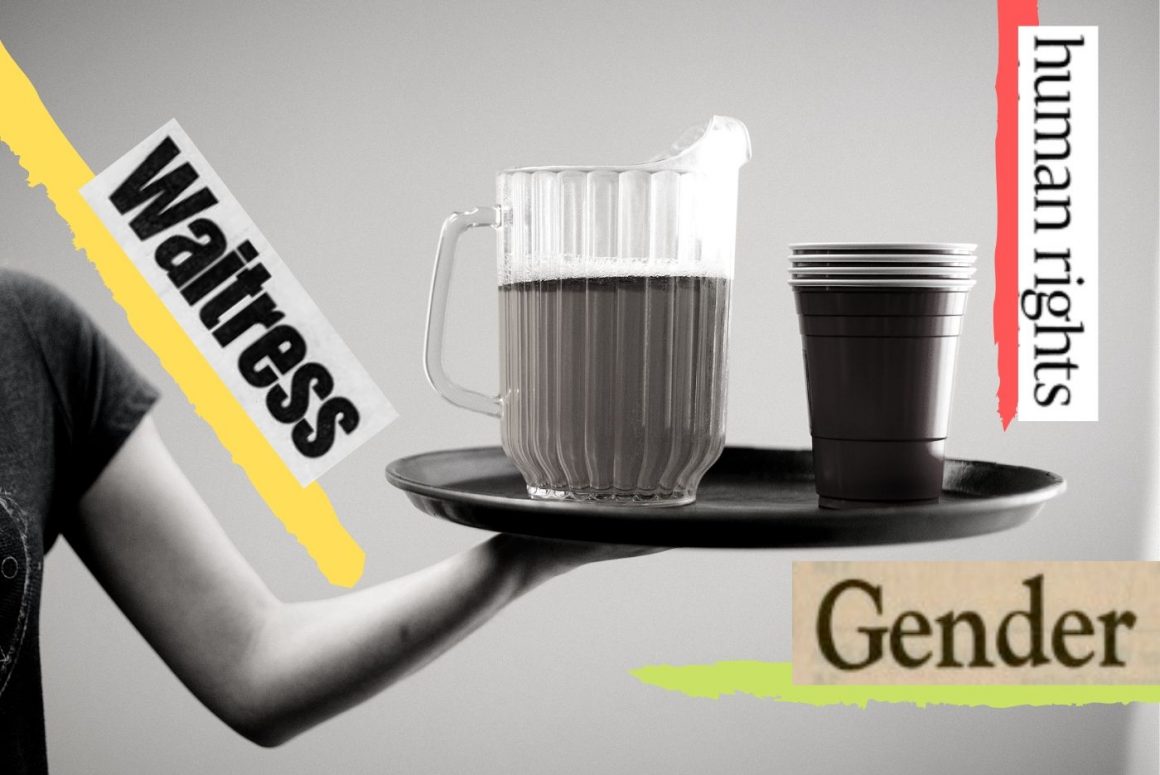
Gendered language in job ads runs contrary to Human Rights Act
By Kristy Koehler, August 1 2019—
As gendered language becomes more and more obsolete, there’s one place it’s still very prevalent, and likely against the law — job boards. The industry with a rampant problem of gender discrimination on job boards is the restaurant industry. While gendered words like “waitress” fell out of favour in the common vernacular years ago, they’re still all too common on help-wanted pages.
A quick click through the hiring ads on major job search sites highlighted two repeat offenders where gendered language was frequent — Indeed and Kijiji. Both sites allow users to post their own help-wanted ads and a good portion of these ads contain descriptors like “waitress” and “hostess” instead of the gender-neutral “server” or “waitstaff.”
Section 8(1) of the Alberta Human Rights Act states that “no person shall use or circulate any form of application for employment or publish any advertisement in connection with employment or prospective employment” that “expresses either directly or indirectly any limitation, specification or preference indicating discrimination on the basis” of a protected ground, which includes gender.
The Gauntlet contacted both companies and asked about their policies surrounding gendered language in job ads.
Kijiji, in an email, provided a link to their “Jobs Code of Conduct” which states that discrimination on the basis of gender is prohibited. However, in a worrying continuation, the email also stated the following:
“Kijiji tries to be lenient when possible. Kijiji naturally doesn’t allow any obvious cases of exclusion or discrimination (ie. “Females only”, “Must be…”, “No [blank] allowed”). That said, there’s nothing inherently discriminatory about looking for a “waitress” or “cleaning lady,” as the implication in these cases is that other genders/races/ethnicities are theoretically still welcome to apply. Users can have personal preferences without being discriminatory.”
Jennifer Koshan, a professor in the Faculty of Law at the University of Calgary, disagrees.
“It would be, at the very least, a prima facie case of discrimination and then it would be up to the employer to establish why it would create undue hardship for them not to be able to hire on the basis of that preference,” said Koshan.
Koshan says there are specific circumstances in which a preference may be justified — and the Act allows for this. She cited the examples of care homes seeking caregivers of the same gender as their patients and female prison guards being requested for female-only prisons.
Employers expressing a gender preference to fill a restaurant service job are unlikely to be able to prove that hiring one gender over the other is a bona fide occupational requirement.
The Gauntlet attempted to test-post a job ad on Indeed, and when we began typing the word “waitstaff,” the word “waitress” was auto-suggested. We contacted Indeed to ask about their policies. Madalina Secareanu of corporate communications provided the following statement in an email:
“Indeed is a search engine for jobs. Companies post or sponsor job advertisements directly to Indeed. In addition, Indeed pulls jobs from employer career sites, job boards and staffing agencies allowing job seekers to access these positions from its site. Indeed does not auto-populate fields on behalf of employers.”
We wrote back to Indeed, asking them to fact-check their statement and provide clarity on their policy and received a second statement.
“We endeavor to mitigate job posts that may lead to discrimination and are currently investigating ways in which we can improve our process in order to prevent these occurrences going forward,” read the statement.
There are two problems at play here. The first is that job board websites allow discriminatory language to be used in posts and do virtually nothing to stop it from happening. The other problem lies with the employers themselves and the complete lack of awareness — or care — about what is and is not acceptable in terms of employment law.
This is a sentiment echoed by Koshan.
“Applications are one thing, but it’s the practices of employers that are potentially problematic here too,” she said. “If employers actually do have a preference for hiring female waitstaff, it’s not only the ads that are problematic, it’s the actual hiring practices that are problematic as well.”
Even the Canada Job Bank, run by Employment and Social Development Canada, said in a statement that they do not have a policy regarding gendered language in job advertisements.
The first step to ending discrimination in hiring practices is education. Koshan stresses that there are plenty of good employers out there, and many more who simply aren’t aware that using gendered language is inappropriate. She says that bringing public attention to the issue is a step in the right direction.
“What I would start by doing is to contact the company in question to ask them if they are aware that the language they are using does express a gender preference and is inconsistent with the Human Rights Act,” said Koshan. “Failing any action being taken by those companies, a human rights complaint is eventually a possibility.
“It might be an interesting issue for the Human Rights Commission to take on. Part of the mandate of the Human Rights Commission is education so there is certainly a role for them to play in educating employers about the fact that it’s inappropriate to use that kind of gendered language in their job ads.”
Employers have a responsibility to educate themselves as to what is and is not appropriate but so too do major employment websites have a responsibility in not facilitating discrimination through allowing these gendered job ads to be posted.
